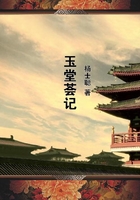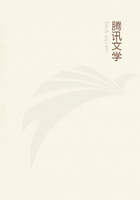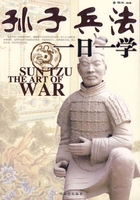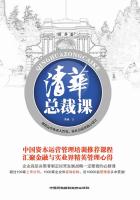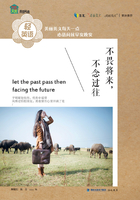No man living had a harder task, and a task that called for more wisdom to do it right. The true measure of Mr. Washington's success is, then, not his teaching the pupils of Tuskegee, nor even gaining the support of philanthropic persons at a distance, but this--that every Southern white man of character and of wisdom has been won to a cordial recognition of the value of the work, even men who held and still hold to the conviction that a mere book education for the Southern blacks under present conditions is a positive evil. This is a demonstration of the efficiency of the Hampton-Tuskegee idea that stands like the demonstration of the value of democratic institutions themselves--a demonstration made so clear in spite of the greatest odds that it is no longer open to argument.
Consider the change that has come in twenty years in the discussion of the Negro problem. Two or three decades ago social philosophers and statisticians and well-meaning philanthropists were still talking and writing about the deportation of the Negroes, or about their settlement within some restricted area, or about their settling in all parts of the Union, or about their decline through their neglect of their children, or about their rapid multiplication till they should expel the whites from the South--of every sort of nonsense under heaven. All this has given place to the simple plan of an indefinite extension among the neglected classes of both races of the Hampton-Tuskegee system of training. The "problem" in one sense has disappeared. The future will have for the South swift or slow development of its masses and of its soil in proportion to the swift or slow development of this kind of training. This change of view is a true measure of Mr. Washington's work.
The literature of the Negro in America is colossal, from political oratory through abolitionism to "Uncle Tom's Cabin" and "Cotton is King"--a vast mass of books which many men have read to the waste of good years (and I among them); but the only books that I have read a second time or ever care again to read in the whole list (most of them by tiresome and unbalanced "reformers") are "Uncle Remus" and "Up from Slavery"; for these are the great literature of the subject. One has all the best of the past, the other foreshadows a better future; and the men who wrote them are the only men who have written of the subject with that perfect frankness and perfect knowledge and perfect poise whose other name is genius.
Mr. Washington has won a world-wide fame at an early age. His story of his own life already has the distinction of translation into more languages, I think, than any other American book; and I suppose that he has as large a personal acquaintance among men of influence as any private citizen now living.
His own teaching at Tuskegee is unique. He lectures to his advanced students on the art of right living, not out of text-books, but straight out of life. Then he sends them into the country to visit Negro families. Such a student will come back with a minute report of the way in which the family that he has seen lives, what their earnings are, what they do well and what they do ill; and he will explain how they might live better. He constructs a definite plan for the betterment of that particular family out of the resources that they have. Such a student, if he be bright, will profit more by an experience like this than he could profit by all the books on sociology and economics that ever were written. I talked with a boy at Tuskegee who had made such a study as this, and I could not keep from contrasting his knowledge and enthusiasm with what I heard in a class room at a Negro university in one of the Southern cities, which is conducted on the idea that a college course will save the soul.
Here the class was reciting a lesson from an abstruse text-book on economics, reciting it by rote, with so obvious a failure to assimilate it that the waste of labour was pitiful.
I asked Mr. Washington years ago what he regarded as the most important result of his work, and he replied:
"I do not know which to put first, the effect of Tuskegee's work on the Negro, or the effect on the attitude of the white man to the Negro."
The race divergence under the system of miseducation was fast getting wider. Under the influence of the Hampton-Tuskegee idea the races are coming into a closer sympathy and into an honourable and helpful relation. As the Negro becomes economically independent, he becomes a responsible part of the Southern life; and the whites so recognize him. And this must be so from the nature of things. There is nothing artificial about it. It is development in a perfectly natural way. And the Southern whites not only so recognize it, but they are imitating it in the teaching of the neglected masses of their own race. It has thus come about that the school is taking a more direct and helpful hold on life in the South than anywhere else in the country. Education is not a thing apart from life--not a "system," nor a philosophy; it is direct teaching how to live and how to work.
To say that Mr. Washington has won the gratitude of all thoughtful Southern white men, is to say that he has worked with the highest practical wisdom at a large constructive task; for no plan for the up-building of the freedman could succeed that ran counter to Southern opinion. To win the support of Southern opinion and to shape it was a necessary part of the task; and in this he has so well succeeded that the South has a sincere and high regard for him. He once said to me that he recalled the day, and remembered it thankfully, when he grew large enough to regard a Southern white man as he regarded a Northern one. It is well for our common country that the day is come when he and his work are regarded as highly in the South as in any other part of the Union. I think that no man of our generation has a more noteworthy achievement to his credit than this; and it is an achievement of moral earnestness of the strong character of a man who has done a great national service.
Walter H. Page.

